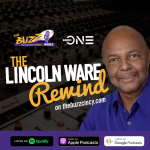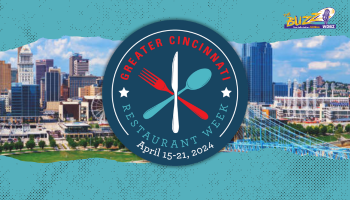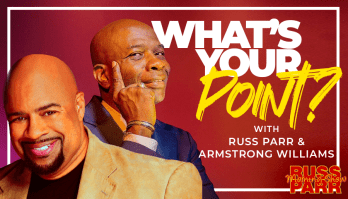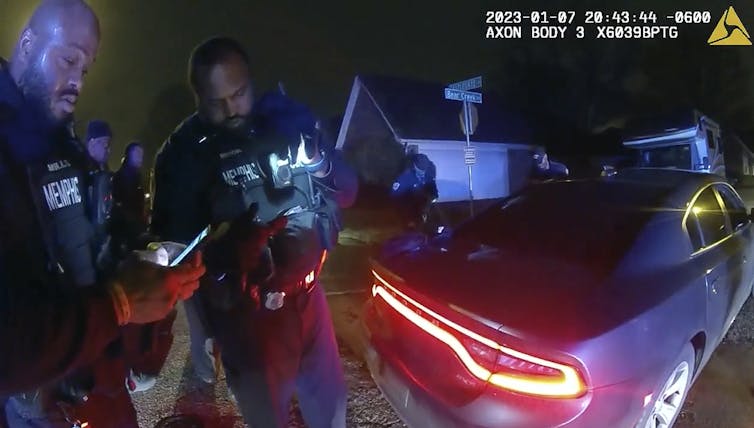
The killing of Tyre Nichols has raised questions about the use and risks of a routine part of U.S. policing: the traffic stop.
Nichols died in the hospital on Jan. 10, 2022, from injuries sustained in a beating by five officers three days earlier. The violence occurred after the 29-year-old Black man was pulled over while driving in Memphis, Tennessee. The officers, all of whom are also Black, have since been fired and face charges of second-degree murder.
While not all traffic stops result in violent encounters – indeed studies suggest that relatively few do – the case of Nichols highlights that such encounters can become sites of police violence. And this isn’t an isolated incident. Before Nichols came Patrick Lyoya, Philando Castile and Sandra Bland, to name just a few high-profile cases. All were killed by police in incidents that began with a traffic stop.
We have analyzed a data set of more than 20 million traffic stops as part of research into the effectiveness of this routine part of police life. What we have found is that, even by its own standards, the return on this high-contact form of policing is slim – it rarely leads to criminal charges or convictions. Moreover, the negative consequences are far-reaching. Law enforcement traffic stops are prone to racial bias and cause harm to communities and individuals disproportionate to any benefit that they bring, our research suggests.
‘Broken taillight’ theory?
Traffic stops represent the most common nonvoluntary interaction between citizens and police officers in the U.S. Every year, around 20 million stops are recorded.
Some of these stops are for legitimate public safety reasons – drunken drivers, for example, are an obvious risk to other road users. But police officers have huge discretion when it comes to conducting traffic stops for a whole slew of driving infractions, from a broken taillight to speeding. They can also, in most states, initiate a traffic stop as the pretext to investigating other crimes. This right was confirmed by the Supreme Court in 1996 in Whren vs. United States. The ruling stated that it is not unconstitutional for officers to use any traffic violation, no matter how minor, as a reason to search the vehicle for other suspected crimes – for example, the possession of illegal drugs – if they have reasonable cause.
These pretextual stops, stopping cars for minor infractions as an opportunity to look for evidence of drug-related or violent crime, can be thought of as the roadside equivalent to “stop and frisk” – the practice of allowing officers to search someone on the streets if they have “reasonable” suspicion of criminal activity.
Both form part of what is called the “broken windows” theory of policing. This idea, which rose to prominence in the 1990s, holds that minor instances of disorder in a neighborhood create an environment that will eventually lead to more serious instances of crime, and that by focusing on smaller infractions police can root out more serious offenses.
The SCORPION unit that pulled over Nichols exemplifies the type of high-contact, proactive, and aggressive policing that often characterizes broken windows tactics. The officers who killed Nichols gave him more than 70 orders in just a few minutes.
Broken windows policing has long been debunked by many criminologists who find that it fails to achieve its objectives, at the detriment of communities. Our research suggests that traffic stops yield few results when it comes to serious crimes. Analysis of 9.5 million traffic stops in North Carolina between 2013 and 2019 shows that just 1.2% led to felony charges. The felony conviction rate resulting from pulling over a driver was 0.23%.
Driving while Black
While the effectiveness of traffic stops as a tool to apprehend serious criminals appears tenuous at best, what is clear is that pulling over drivers has the potential for negative, sometimes violent, outcomes – especially for Black drivers.
It can also affect entire communities. Ferguson, Missouri, is just one well-known example of how widespread racially biased traffic stops can erode trust in the police.
In places like Ferguson, evidence has shown that intensely policing minor traffic infractions, while legally permissible, can drown communities in fines, fees and administrative burdens. And Ferguson isn’t alone. Funds from penalty fines are used to help fund police and local governments across the U.S. A 2019 study found that in 600 jurisdictions across the U.S. fines made up more than 10% of funds. In almost half of those governments, money from ticketing accounted for more than 20% of funding.
This financial burden falls disproportionately on Black drivers. A 2021 New York Times analysis of 4,000 traffic citations handed out in Newburgh Heights, Ohio, a small town just south of Cleveland, found that 76% of license and insurance violations and 63% of speeding tickets were handed to Black drivers. Black residents made up just 22% of the town’s population.
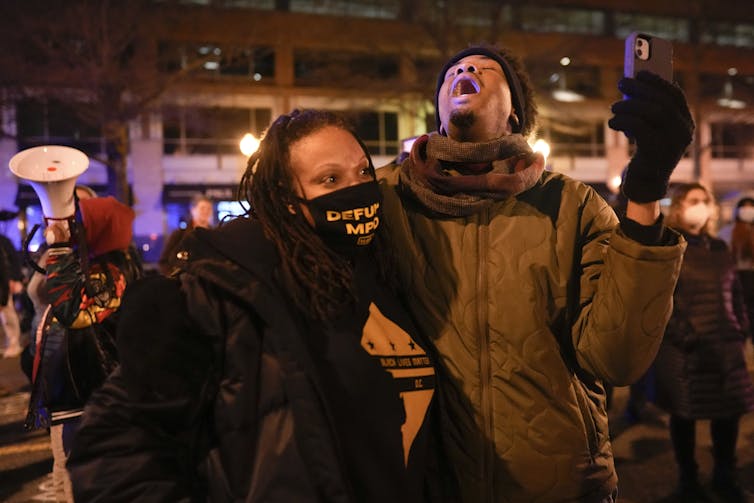
Racial bias has long accompanied traffic stops. In the largest study of its kind, Stanford researchers in 2020 analyzed 100 million traffic stops and concluded that “persistent racial bias” existed. The study found that during daylight hours Black drivers are more likely to be pulled over than their white counterparts. But at nighttime, when the “veil of darkness” makes it harder for officers to racially identify drivers, white drivers are stopped more often than Black drivers.
This concurs with our own findings on traffic stop data from North Carolina: Black men are far more likely to be searched by cops than their white counterparts – at a rate of just under two to one – despite being less likely to be found with any illegal substances.
Traffic stops can also be a precursor to violent and deadly encounters, such as in the case of Nichols’ killing. The New York Times in 2021 found that over a five-year period, police officers in the U.S. killed more than 400 drivers or passengers not brandishing a gun or knife and not being pursued over a violent crime. Black Americans were disproportionately represented among those killed by officers, the newspaper found.
Taking a new route
Using the traffic code to raise funds for jurisdictions or as a pretext to investigate serious crime produces only dubious public safety benefits and comes at a heavy cost, research indicates.
It has prompted some policymakers to look at other options, such as scaling back the types of infractions that can provide a basis for a traffic stop. In 2020, Virginia became the first state to ban officers from conducting traffic stops for low-level violations, such as a broken taillight or illegal tinted windows. A year earlier, the Oregon Supreme Court ruled that it is impermissible for police officers to use a routine traffic stop as a springboard for broader criminal investigations by asking if they can search a vehicle without reasonable suspicion of criminal activity.
Such moves will limit the number of interactions police have with motorists. They could also save lives.![]()
Derek Epp, Assistant professor in the Department of Government, The University of Texas at Austin and Megan Dias, PhD Candidate, The University of Texas at Austin
This article is republished from The Conversation under a Creative Commons license. Read the original article.
![]() SEE ALSO:
SEE ALSO:
Black Caucus Meets With White House On Police Reform In Wake Of Tyre Nichols Murder
Can The Police Truly Be Reformed? The US Government Has Limited Power To Regulate Cops
The post Is It Time To Rethink Police Traffic Stops? appeared first on NewsOne.
Is It Time To Rethink Police Traffic Stops? was originally published on newsone.com






